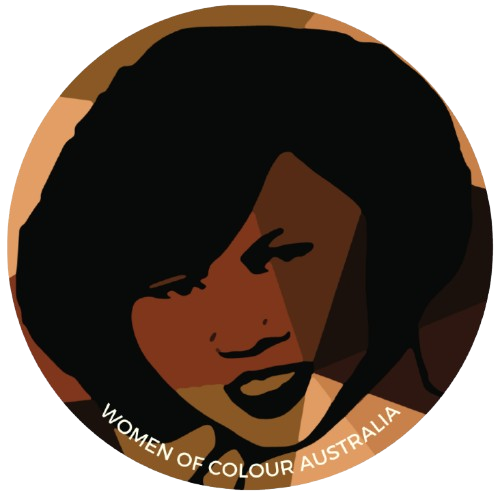Transcript
Loretta Ross: Y’all know where the term “women of color” came from? Who can say that? See, we’re bad at transmitting history.
In 1977, a group of Black women from Washington, DC, went to the National Women’s Conference, that [former President] Jimmy Carter gave $5million to have as part of the World Decade for Women.
There was a conference in Houston, TX. This group of Black women carried into that conference something called “The Black Women’s Agenda” because the organizers of the conference—Bella Abzug, Ellie Smeal, and what have you—had put together a three-page “Minority Women’s Plank” in a 200-page document that these Black women thought was somewhat inadequate. (Giggles in background)
So they actually formed a group called Black Women’s Agenda to come [sic] to Houston with a Black women’s plan of action that they wanted the delegates to vote to substitute for the “Minority Women’s Plank that was in the proposed plan of action.
Well, a funny thing happened in Houston: when they took the Black Women’s Agenda to Houston, then all the rest of the “minority” women of color wanted to be included in the “Black Women’s Agenda.” Okay? Well, [the Black women] agreed…but you could no longer call it the “Black Women’s Agenda.” And it was in those negotiations in Houston [that] the term “women of color” was created. Okay?
And they didn’t see it as a biological designation—you’re born Asian, you’re born Black, you’re born African American, whatever—but it is a solidarity definition, a commitment to work in collaboration with other oppressed women of color who have been “minoritized.”
Now, what’s happened in the 30 years since then is that people see it as biology now. (Murmurs of understanding, agreement) You know? Like, “Okay…” And people are saying they don’t want to be defined as a woman of color: “I am Black, “I am Asian American”…and that’s fine. But why are you reducing a political designation to a biological destiny? (Murmurs of agreement) That’s what white supremacy wants you to do.
And I think it’s a setback when we disintegrate as people of color around primitive ethnic claiming. Yes, we are Asian American, Native American, whatever, but the point is, when you choose to work with other people who are minoritized by oppression, you’ve lifted yourself out of that basic identity into another political being and another political space.
And, unfortunately, so many times, people of color hear the term “people of color” from other white people that [PoCs] think white people created it instead of understanding that we self-named ourselves. This is a term that has a lot of power for us. But we’ve done a poor-ass job of communicating that history so that people understand that power.
Source: thesocietypages.org

